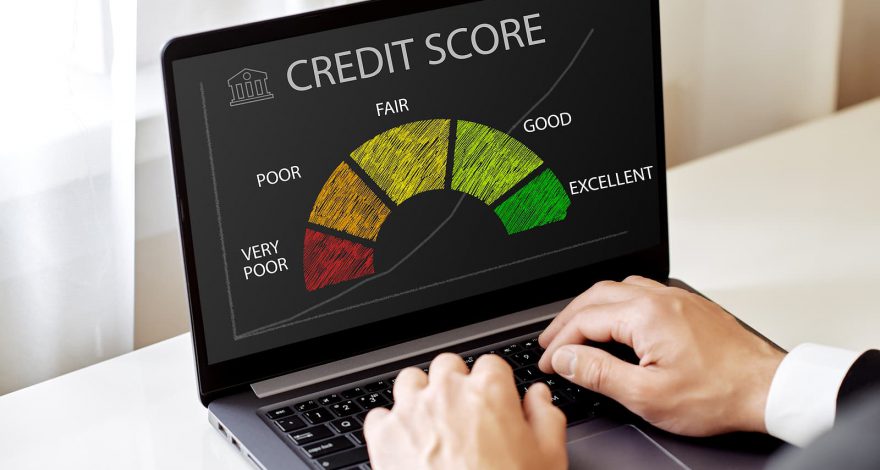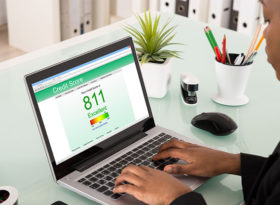 Credit Health
Credit Health
How well do you know your credit score?
A guide to understanding your credit score: why does it matter and how to improve it?
We’re all familiar with what credit cards are, but things can get a little bit more complicated when it comes to credit scores and ratings.
Turns out, if you’re after a loan, your credit score plays a pretty big part. So let’s break all the details into bite-size pieces – this is your unofficial guide to knowing your credit score.
What is a credit score?
A simple definition – your credit score is a summary of your credit information.
A credit score is calculated based on personal and financial information about you kept in your credit report. The score comes in a number from the lowest – 0 to the highest numbers: either 1, 000 or 1, 200. The higher the number, the better – high credit score means you wouldn’t be a risky customer in the eyes of a potential lender.
Why does your credit score matter?
Your credit score is an important factor in determining whether you can get the loan you want or an approval for a credit card. It also determines how much money you can borrow and on what terms, including the interest rate.
In short, people with high credit scores can get loans they’re after and better interest rates when borrowing.
If your credit score is high, a potential lender will see you as a safe option and not deem you a high-risk customer. On the flip side, if your credit score is lower than average, don’t assume the lender won’t approve your application for a loan. They may offer you less amount and at a higher interest rate.
What affects your credit score?
There is more than one aspect that counts when calculating your credit score:
- Previous and current debts
- Previous and current attempts to borrow
- Missed bills and repayments
- Credit reports and whether you check it
- Your age
- Time spent in the same job and living location
- Bankruptcy and personal insolvency
- Any payment defaults
Your personal information matters as much as the financial situation. People who are older, have been with their employer for longer and living in the same place for longer periods tend to score higher.
However, it isn’t a one-size-fits-all situation as different lenders vary across different industries.
How to check my credit score online for free?
It’s good to keep an eye on your credit score, especially if you recently had some financial issues or considering to apply for a loan or a credit card.
You can get your credit score online for free along with your credit report – information about your current credit situation, acquired loans, debts, repayment history.
There are a few agencies around that can get you a copy of your credit report such as Equifax, CreditSavvy, CreditSimple and ClearScore.
A credit report is usually free if you’re willing to wait 10 days for it to come through. However, you may have to pay if you need it sooner or ask for more than one copy per year.
Tips on how to improve your credit score
No matter how your credit score is currently tracking, remember – it can change easily. The good news is, you can always improve it with a few simple tips below to help boost the score
Always make payments on time
Set a reminder on your phone to help you remember to make repayments promptly. Better yet, start scheduling! Many banks have internet banking and payment tools that allow you to set up automatic withdrawals in line with your salary.
Keep an eye on your debt to credit ratio
The fact that you can borrow a certain amount of money doesn’t necessarily mean that you should. If you max out your credit card limit frequently, it’s a strike against you when a lender checks at your credit. And remember, you can always consult if you have doubts which type of loan is the most suitable for you.
Don’t apply for new credit too often
Many recent applications will be a red flag for many credit organisations. Instead, apply for credit only when it’s needed. Keeping the same line of credit opened long-term and making payments on time every month will work in your favour.
Be aware of your financial situation
Get and analyse your credit report once a year – it will help you figure out what you can or cannot buy and how much credit you can use, in favour of keeping or raising your score. Start budgeting and reduce spontaneity in stores and online shops. Take control of your spending and borrowing habits.
Dare to dream and make plans
Try to paint the bigger picture for yourself: where you want to be and what you want to acquire in a year, in 5 years or 10 years? And how the numbers in your bank account can help you make your dreams come true. Use your current credit score as a starting point: if you want to improve it, start saving, consolidate your debts, find one more income source and let your plan guide you to your destination.




